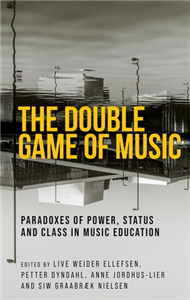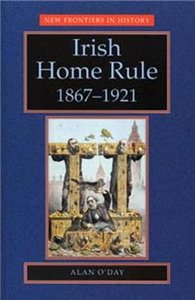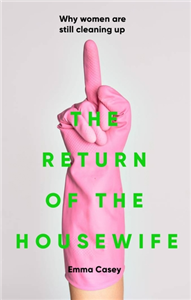Your Search Results
-
Promoted Content
-
Promoted Content
-
 Trusted Partner
Trusted Partner
-
 Trusted Partner
Trusted Partner
-
 Trusted Partner
Trusted Partner
-
 Trusted Partner
Trusted Partner
-
 Trusted Partner
Trusted Partner
-
 Trusted Partner
Trusted Partner
-
 Trusted Partner
The ArtsDecember 2025
Trusted Partner
The ArtsDecember 2025The double game of music
Paradoxes of power, status and class in music education
by Live Weider Ellefsen, Petter Dyndahl, Anne Jordhus-Lier, Siw Graabræk Nielsen
The double game of music imagines music education as a series of games - each with its own rules, play currency and players - to challenge readers to rethink the significance of music and musical upbringing in shaping social structures. Drawing on their own empirical research and a wide range of international contributions, the authors unravel the intertwining of social positioning and power hierarchies with players beliefs in the pure values and virtues of their games, whether these relate to parenting, children's play, schooling, academic pursuits, musical leisure activities or the television and music industries. In a world where music is often celebrated as an important tool for inclusion and democratisation, this groundbreaking book offers a timely critique, revealing complexities and contradictions that tend to be overlooked by teachers, researchers, politicians and others interested in the powers of music education.
-
 Trusted Partner
Humanities & Social SciencesAugust 1998
Trusted Partner
Humanities & Social SciencesAugust 1998Irish Home Rule
by Alan O'Day, Mark Greengrass
Irish Home Rule considers the pre-eminent issue in British politics during the late nineteenth and early twentieth-centuries. It is the first account to explain the various self-government plans, to place these in context and examine the motives for putting the schemes forward. The book distinguishes between moral and material home rulers, making the point that the first appealed especially to outsiders, some Protestants and the intelligentsia, who saw in self-government a means to reconcile Ireland's antagonistic traditions. In contrast, material home rulers viewed a Dublin Parliament as a forum of Catholic interests. This account appraises the home rule movement from a fresh angle, distinguishing it from the usual division drawn between physical force and constitutional nationalists It maintains that an ideological continuity runs from Young Ireland, the Fenians, the early home rulers including Isaac Butt and Charles Stewart Parnell, to the Gaelic Revivalists to the Men of 1916. These nationalists are distinguishable from material home rulers not on the basis of methods or strategy but by a fundamental ideological cleavage. ;
-
 Trusted Partner
Literary studies: fiction, novelists & prose writersJanuary 2015
Trusted Partner
Literary studies: fiction, novelists & prose writersJanuary 2015Making home
Orphanhood, kinship and cultural memory in contemporary American novels
by Maria Holmgren Troy, Elizabeth Kella, Helena Wahlström
Making home explores the figure of the orphan child in a broad selection of contemporary US novels by popular and critically acclaimed authors Barbara Kingsolver, Linda Hogan, Leslie Marmon Silko, Marilynne Robinson, Michael Cunningham, Jonathan Safran Foer, John Irving, Kaye Gibbons, Octavia Butler, Jewelle Gomez and Toni Morrison. The orphan child is a continuous presence in US literature, not only in children's books and nineteenth-century texts, but also in a variety of genres of contemporary fiction for adults. Making home examines the meanings of this figure in the contexts of American literary history, social history and ideologies of family, race and nation. It argues that contemporary orphan characters function as links to literary history and national mythologies, even as they may also serve to critique the limits of literary history, as well as the limits of familial and national belonging.
-
 Trusted Partner
Literature & Literary StudiesAugust 2014
Trusted Partner
Literature & Literary StudiesAugust 2014Making home
Orphanhood, kinship and cultural memory in contemporary American novels
by Maria Holmgren Troy, Sharon Monteith, Elizabeth Kella, Nahem Yousaf, Helena Wahlstrom
Making home explores the figure of the orphan child in a broad selection of contemporary US novels by popular and critically acclaimed authors Barbara Kingsolver, Linda Hogan, Leslie Marmon Silko, Marilynne Robinson, Michael Cunningham, Jonathan Safran Foer, John Irving, Kaye Gibbons, Octavia Butler, Jewelle Gomez and Toni Morrison. The orphan child is a continuous presence in US literature, not only in children's books and nineteenth-century texts, but also in a variety of genres of contemporary fiction for adults. Making home examines the meanings of this figure in the contexts of American literary history, social history and ideologies of family, race and nation. It argues that contemporary orphan characters function as links to literary history and national mythologies, even as they may also serve to critique the limits of literary history, as well as the limits of familial and national belonging.
-
 Trusted Partner
Literature & Literary StudiesJuly 2021
Trusted Partner
Literature & Literary StudiesJuly 2021Making home
Orphanhood, kinship and cultural memory in contemporary American novels
by Maria Holmgren Troy, Elizabeth Kella, Helena Wahlstrom, Maria Holmgren Troy
Making home explores the figure of the orphan child in a broad selection of contemporary US novels by popular and critically acclaimed authors Barbara Kingsolver, Linda Hogan, Leslie Marmon Silko, Marilynne Robinson, Michael Cunningham, Jonathan Safran Foer, John Irving, Kaye Gibbons, Octavia Butler, Jewelle Gomez and Toni Morrison. The orphan child is a continuous presence in US literature, not only in children's books and nineteenth-century texts, but also in a variety of genres of contemporary fiction for adults. Making home examines the meanings of this figure in the contexts of American literary history, social history and ideologies of family, race and nation. It argues that contemporary orphan characters function as links to literary history and national mythologies, even as they may also serve to critique the limits of literary history, as well as the limits of familial and national belonging.
-
 Trusted Partner
Literature & Literary StudiesJuly 2003
Trusted Partner
Literature & Literary StudiesJuly 2003Dwelling places
Postwar Black British Writing
by James Procter
Explores some of the key venues of black British literary and cultural production across the postwar period: bedsits and basements; streets and cafes; train stations and tourist landscapes; the suburbs and the city; the north and south. Pursues a 'devolving' landscape in order to consider what an analysis of 'dwelling' might contribute to the travelling theories of diaspora discourse and asks what happens when we 'situate' literatures of movement and migration. Offers fresh readings of work by some of the key literary figures of the postwar years, for example, Salman Rushdie, Hanif Kureishi, Meera Syal, Linton Kwesi Johnson. Contextualises writings alongside photography, painting, and film to consider their relationship to broader shifts in the politics of black representation over the past fifty years. Offers sustained anaysis of many of the texts reproduced in Procter's anthology Writing black Britain 1948-98 ( MUP, 2000) making an ideal companion to the earlier book. ;
-
 Trusted Partner
September 2004
Trusted Partner
September 2004Boarding Home
Roman
by Guillermo Rosales, Christian Hansen
"»Außen am Haus stand BOARDING HOME, aber ich wußte, daß es mein Grab sein würde. Es war eins jener Heime für Menschen, die das Leben aussortiert hat. Für Idioten vor allem. Manchmal aber auch für alte Leute, die von ihren Familien hier abgegeben wurden, damit sie vor Einsamkeit sterben und den Siegern nicht in die Suppe spucken.« William Figueras, ein kubanischer Schriftsteller, den die Revolution nicht gefressen, aber seiner Illusionen beraubt hat, ist auf der Flucht vor »der Kultur, der Musik, der Literatur, dem Fernsehen, den Sportereignissen, der Geschichte und der Philosophie Kubas«. In der Tasche nicht mehr als seine zerlesene Ausgabe englischer Romantiker, wird er von seinen Verwandten in Miami bald nach seiner Ankunft dort ins Heim abgeschoben; mehr könne man nicht tun, das werde er verstehen. Er versteht.Das Heim ist eine höllische Zuflucht, in der alle Opfer sind und doch jeder, so gut er kann, als Täter agiert. Kein Entrinnen scheint es zu geben, weil jenseits ihrer offenen Türen die Freiheit droht. Eines Tages erscheint Francis unter den Idioten und mit ihr die Erinnerung an menschliche Gefühle. Die beiden versuchen, die überfahrt in die allerletzte Heimat abzubrechen."
-
 Trusted Partner
Humanities & Social SciencesJune 2025
Trusted Partner
Humanities & Social SciencesJune 2025Taking travel home
The souvenir culture of British women tourists, 1750–1830
by Emma Gleadhill
In the late eighteenth-century, elite British women had an unprecedented opportunity to travel. Taking travel home uncovers the souvenir culture these women developed around the texts and objects they brought back with them to realise their ambitions in the arenas of connoisseurship, friendship and science. Key characters include forty-three-year-old Hester Piozzi (Thrale), who honeymooned in Italy; thirty-one-year-old Anna Miller, who accompanied her husband on a Grand Tour; Dorothy Richardson, who undertook various tours of England from the ages of twelve to fifty-two; and the sisters Katherine and Martha Wilmot, who travelled to Russia in their late twenties. The supreme tourist of the book, the political salon hostess Lady Elizabeth Holland, travelled to many countries with her husband, including Paris, where she met Napoleon, and Spain during the Peninsular War. Using a methodology informed by literary and design theory, art history, material culture studies and tourism studies, the book examines a wide range of objects, from painted fans "of the ruins of Rome for a sequin apiece" and the Pope's "bless'd beads", to lava from Vesuvius and pieces of Stonehenge. It argues that the rise of the souvenir is representative of female agency, as women used their souvenirs to form spaces in which they could create and control their own travel narratives.
-
 Trusted Partner
Medicine
Trusted Partner
MedicineProtection in In-home Care for the Elderly
Preventing and Identifying Abusive Situations – Supporting Care Recipients and Caregivers
by Barbara Baumeister, Trudi Beck (editors)
Why and how are elderly people abused when they receive care in their own homes? How can this abuse be identified and prevented? The authors explains why the elderly are abused when they receive at-home care, differentiate between various forms of abuse, and demonstrate how it can be identified. They present interventions and provide tools for preventing and identifying abuse and for supporting care recipients and caregivers. Target Group: Geriatric nurses, social workers, geriatricians
-
 Trusted Partner
Humanities & Social SciencesApril 2025
Trusted Partner
Humanities & Social SciencesApril 2025The return of the housewife
Why women are still cleaning up
by Emma Casey
An illuminating look at the world of cleanfluencers that asks why the burden of housework still falls on women. Housework is good for you. Housework sparks joy. Housework is beautiful. Housework is glamorous. Housework is key to a happy family. Housework shows that you care. Housework is women's work. Social media is flooded with images of the perfect home. TikTok and Instagram 'cleanfluencers' produce endless photos and videos of women cleaning, tidying and putting things right. Figures such as Marie Kondo and Mrs Hinch have placed housework, with its promise of a life of love and contentment, at the centre of self-care and positive thinking. And yet housework remains one of the world's most unequal institutions. Women, especially poorer women and women of colour, do most low-paid and unpaid domestic labour. In The return of the housewife, Emma Casey asks why these inequalities matter and why they persist after a century of dramatic advances in women's rights. She offers a powerful call to challenge the prevailing myths around housework and the 'naturally competent' woman homemaker.
-
 Trusted Partner
September 2017
Trusted Partner
September 2017Home, Smart Home
Der praktische Einstieg in die Hausautomation. Inkl. Marktüberblick: AVM, Belkin, Fibaro, Gigaset, HomeMatic, SCHWAIGER u.v.m.
by Bertko, Chris; Weber, Tobias
-
 Trusted Partner
Trusted Partner

























